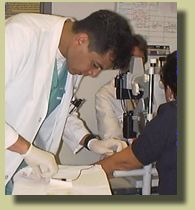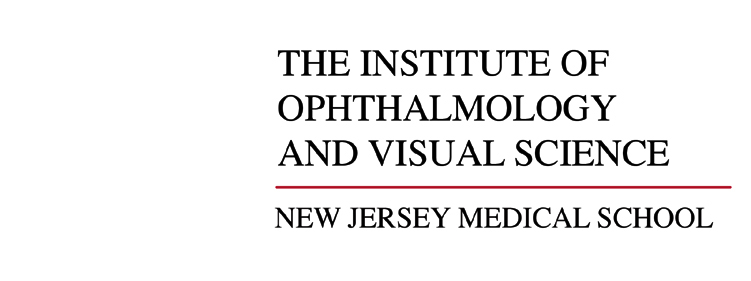|
 During
the second year, residents rotate through 3 subspecialty services: retina,
neuro-ophthalmology,
and pediatric ophthalmology/strabismus. On these rotations, residents work
closely with faculty and are responsible for the inpatient, outpatient,
and surgical management of all patients on their service. The second-year
retina rotation, for example, includes 2 days per week in the operating
room at University
Hospital, where the resident is first assistant on
all vitreoretinal procedures. The remaining 3 days are devoted to the
outpatient clinical care, under the supervision of the full-time faculty.
The resident evaluates patients with retinal disorders, provides laser
photocoagulation for retinal vascular disease, and interprets fluorescein
angiograms. Given their level of responsibility and close working relationship
with the faculty, residents on the subspecialty rotations function essentially
as clinical fellows. During
the second year, residents rotate through 3 subspecialty services: retina,
neuro-ophthalmology,
and pediatric ophthalmology/strabismus. On these rotations, residents work
closely with faculty and are responsible for the inpatient, outpatient,
and surgical management of all patients on their service. The second-year
retina rotation, for example, includes 2 days per week in the operating
room at University
Hospital, where the resident is first assistant on
all vitreoretinal procedures. The remaining 3 days are devoted to the
outpatient clinical care, under the supervision of the full-time faculty.
The resident evaluates patients with retinal disorders, provides laser
photocoagulation for retinal vascular disease, and interprets fluorescein
angiograms. Given their level of responsibility and close working relationship
with the faculty, residents on the subspecialty rotations function essentially
as clinical fellows.
The remaining 2 rotations comprise 10 weeks each at the Jersey
City Medical Center and the Veterans
Affairs Medical Center. Both of these affiliates provide
additional surgical experience with more advanced techniques in anterior
and posterior segment surgery as well as in ophthalmic plastic surgery.
As a result of the experiences at these affiliated hospitals, residents
may expect to have performed 25 intraocular procedures by the end of their
second year.
|

![]()

![]()